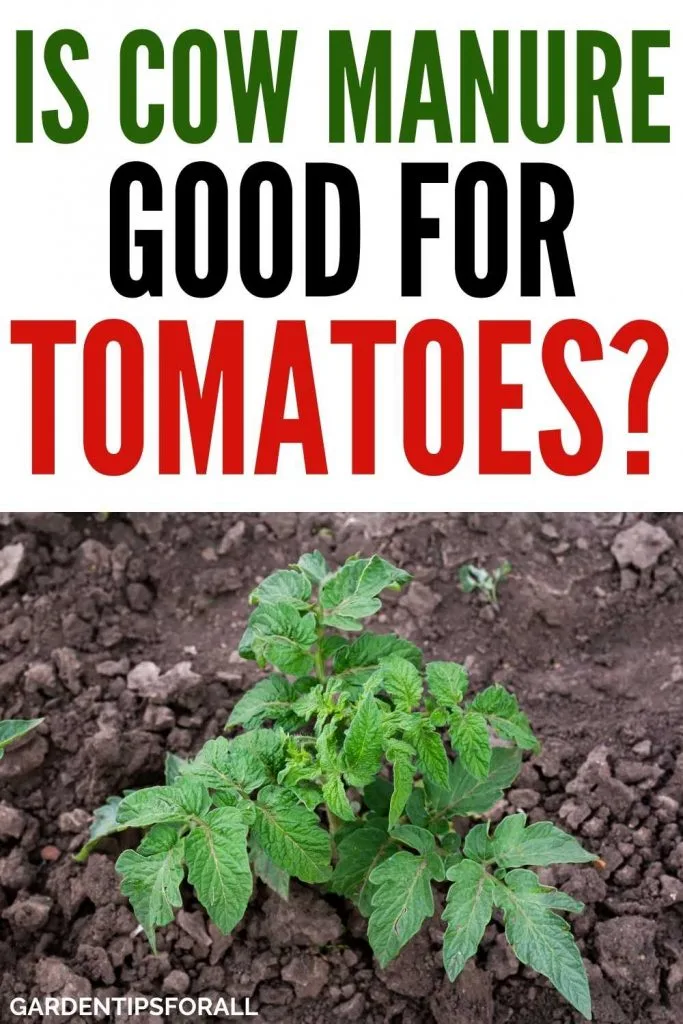Is Cow Manure Good for Tomatoes?
Tomatoes are usually the go-to plants when most DIY farmers think about gardening. And as the plant grows, it becomes essential to use fertilizers to boost foliar growth and increase fruit production.
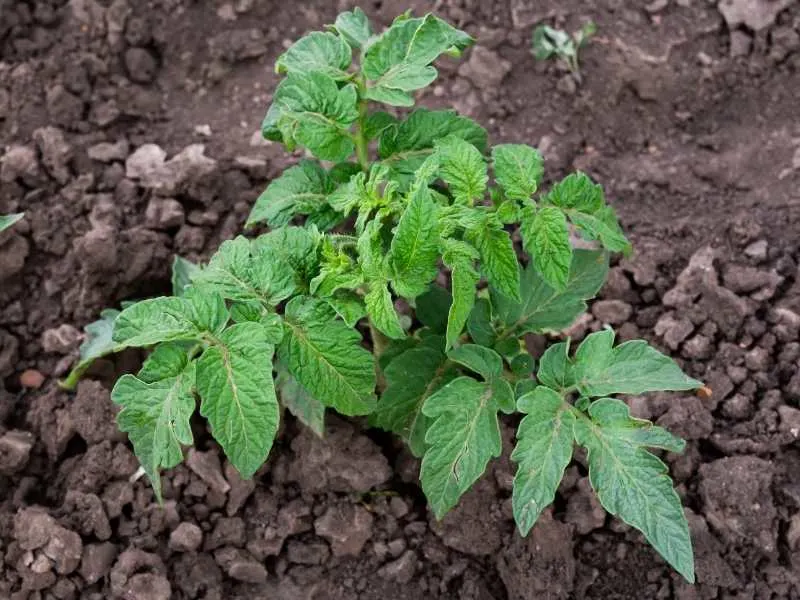
Even though we now have commercial fertilizers where the NPK components are more balanced, some farmers still use cow manure to grow tomatoes.
But is cow manure good for tomatoes?
Cow manure is good for tomatoes. However, it should be allowed to compost for some time before being applied to the soil, and it should be used in small quantities. Cow manure is also best applied before planting the tomatoes and after harvesting.
Please keep reading to learn more about using cow manure and the best tomato fertilizing practices.
Handling Cow Manure
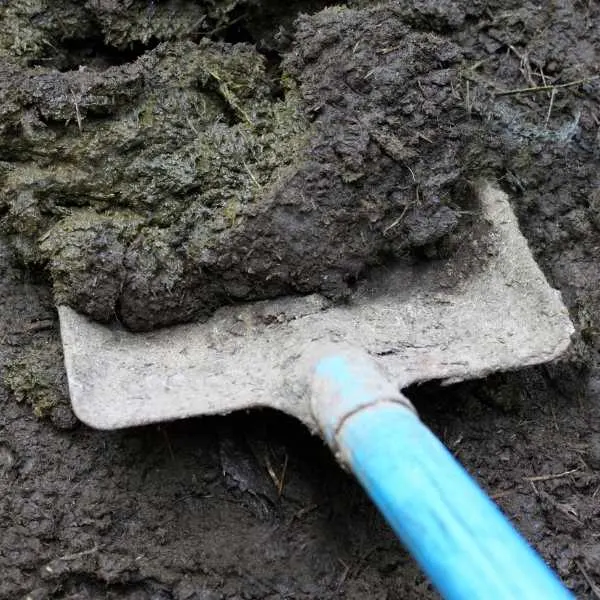
Farmers have used cow manure and manure from other animals to grow crops for a long time. This practice dates back to Ancient Mesopotamia, where agriculture first developed. It contains Nitrogen, phosphorous, potassium, and other nutrients that are beneficial to your tomatoes.
Cow manure also adds organic matter to your soil. Organically-rich soil has better drainage, moderate temperatures, and better air circulation. And unlike other manures, cow manure has lower Nitrogen levels, which is why it’s one of the most commonly used manure for other plants.
In fact, if you are looking for the best manure for tomatoes, then cow manure is your best option.
However, it would help if you didn’t use it when it’s fresh since it has weeds and bacteria (Salmonella, Listeria, and Clostridium). If you want to add fresh manure, wait for about six months to allow the dung to age before planting your tomatoes.
You should allow cow manure to compost for at least six months at temperatures between 120 and 160 Degrees Fahrenheit. Letting the waste age will kill at least 60% of the weeds. Bacteria start dying as soon as the dung leaves the cow’s body. And the high temperatures will kill the more persistent ones.
If you’re using cow manure from your farm, you should monitor the areas your cows graze often. Doing this helps you determine the types of weeds in the waste.
If possible, do not use manure from a dairy farm. Dairy cattle consume a lot of salt, and the manure will dump high sodium levels into your soils. If you have to use the waste from dairy cattle, use it in minimal quantities.
Related Articles:
How Much Cow Manure Should You Add to Your Tomato Garden?
Tomatoes need neutral soils (pH 6.5 to 7) that are rich in Phosphorous, Potassium and low in Nitrogen. You should apply manure sparingly since excessive Nitrogen often leads to more foliage growth and reduced fruit production.
Add 2 to 3 inches of cow manure to your soil and mix it evenly for the best results.
When Should You Fertilize Your Tomatoes?
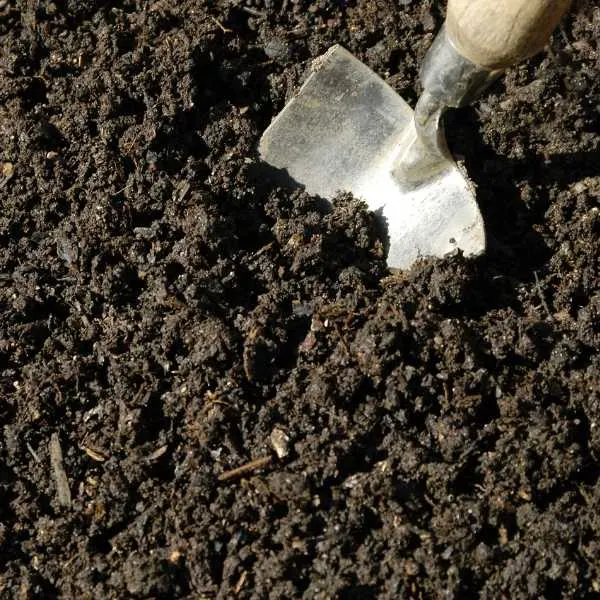
You should fertilize the soil with compost manure weeks before planting and a few weeks after harvesting. This way, the tomatoes will find the nutrients ready for use. But this doesn’t mean you shouldn’t during the growing season.
It is best to side-dress the tomatoes every month with composted cow manure or any other nitrogen fertilizer.
You should also avoid applying fertilizer when it’s too hot. Apply in the evening, after rain, or water the soil before using the manure.
When applying during the growing season, don’t dig dip into the ground. Doing so will only disrupt the plant’s roots. Just distribute the manure over the soil, and when it rains, the manure will eventually mix with the soil.
The good thing about organic manure is that it’s slowly released into the soil, and it can last for years. So if you maintain a regular fertilizing schedule, you’ll have very fertile soil within a few years.
Can You Use Cow Manure for Potted Tomatoes?
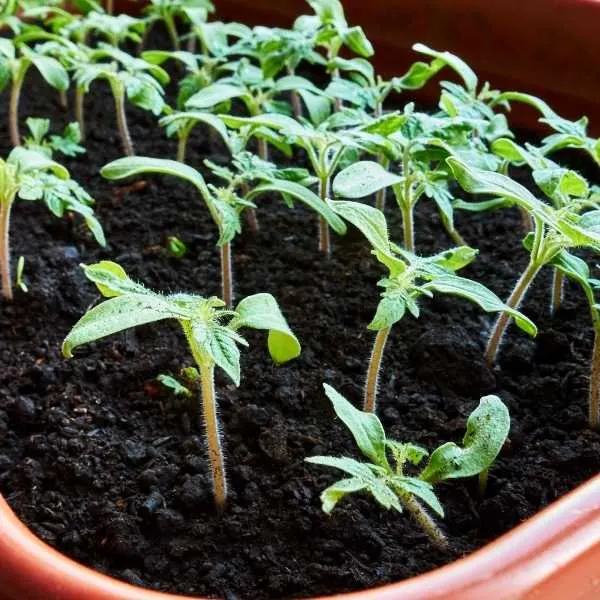
Tomatoes will do well in gardens, pots, and raised beds. When planting in the garden, make sure there’s a 2 to 3 feet space between the plants. The plants should also receive adequate sunlight since they need 75 to 92 F to produce more fruits.
However, you may not always have a garden to grow tomatoes. In such a case, you can utilize the space you have by growing them in containers and raised garden beds.
And yes, cow manure is suitable for potted plants. Just make sure the plants receive enough lighting, water, and nutrients.
Below is a step-by-step process for planting tomatoes in pots.
- It would be best to plant tomatoes in large containers, at least 1-inch larger than the roots’ circumference. For instance, if a tomato plant has a root circumference of 25 inches and 36 inches in depth, then, the container’s circumference should be at least 26-inches and the depth, 37-inches. If you have a 5-gallon container, that’s fine too.
- Make holes at the bottom of the container to enable water drainage.
- When growing tomatoes in pots and raised beds, don’t use manure alone. Instead, mix potting mix with compost cow manure, kelp, limestone, peat, vermiculite, and pumice, which will add more nutrients to the soil. These materials also improve the drainage of the mix.
- Avoid using regular garden soil since it may transfer pests and weeds to the potted plants.
- Once you’ve mixed all the components, add some water, and mix thoroughly using a garden trowel.
- Once you have an even mixture, you can plant your tomato seedlings. Fill each pot with the mixture until it covers the root ball—plant one plant in each container.
- Pack the mixture firmly into the pot with your hands.
- Make sure the container has enough room for the pant and water. Water the tomatoes moderately, place the pot at an east-facing or south-facing window, or any other area where it can receive up to 6 hours of sunlight daily.
- Always check the potting mix to make sure it’s not dry. You should also monitor sunlight levels. If you notice spindly leaves, you can change the location until you get the right position.
- Remove dead plants as soon as possible.
Can You Use Manure from Other Animals?
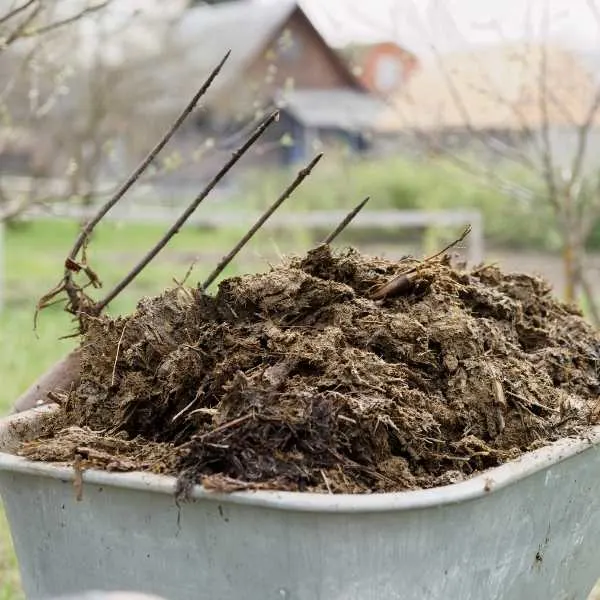
If you don’t have cow manure, you can also utilize horse, poultry, and rabbit manures. Like cow manure, you should allow dung from these animals to compost before planting your tomatoes.
Horse manure works great since it also has straw and other bedding materials that can work as mulch for your plants.
Poultry manure should be handled with care since it has high levels of Nitrogen that may burn your plants. You should also be wearing gloves when handling it. Since poultry breaks down most of the food they eat, their manure has fewer weeds, and the high compost temperatures eliminate most of the bacteria.
NOTE: Avoid using dog or cat manure since it may contain pathogens that are harmful to humans.
Conclusion
Cow manure has a lot of benefits to tomato plants. It can be used both in the garden and in potted tomatoes. However, cow manure, or manure from any other animals, shouldn’t be used to replace other fertilizers. You should only use it as a soil amendment. You should also verify its sources to make sure you don’t transfer weeds and pathogens to your tomatoes.
Related Articles:
